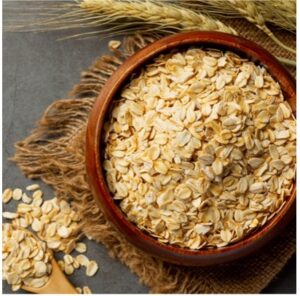8 UK Diet and Lifestyle Tips to Help Heartburn and Acid Reflux
Heartburn is common, in fact it affects up to a quarter of adults in the UK.1
But while most of us get occasional heartburn at some point, for some it can be a daily occurrence and really impact on day-to-day life.
Regular heartburn is known as gastro-oesophageal reflux disease (GORD) and there’s no underestimating the distress and misery it can cause for sufferers.2
What is heartburn & acid reflux and how do they happen?
Described as a painful burning feeling in the chest and often an unpleasant sour taste in the mouth, heartburn, or acid reflux, is a symptom of indigestion and is caused by stomach acid travelling up towards the throat.2
Heartburn/acid reflux occur when the one-way system that prevents stomach contents from entering the gullet (oesophagus) – the muscular ring which joins the oesophagus to the stomach – fails, allowing stomach acid to travel the wrong way causing the pain of heartburn.1
While it can be made worse by stress and anxiety, pregnancy, being overweight and smoking, for some sufferers it’s linked to certain foods and drinks and symptoms are often worse after eating, when bending over and while lying down.2
The good news is – particularly if your symptoms are mild – there are a number things you can do to stop or reduce heartburn.
Read on for our 8 tips to help you avoid the burn, including some simple suggestions for changing your diet and eating patterns.
What foods and drinks may be causing your heartburn & acid reflux symptoms?
Tip 1 – Trigger foods vary from person to person but some of the main culprits are thought to be spicy or fatty foods, acidic foods such as tomatoes, chocolate, coffee and alcohol.2 Other suggested triggers include onions, garlic, citrus fruits including lemons and oranges, fizzy and caffeinated drinks, salad dressings, pepper, cucumber and even mint.3
Tip 2 – It’s best to try and steer clear of any of your gut symptom triggers but if you’re not sure which foods and drinks are causing your heartburn, try keeping a food diary for a week or two to help you work them out.4

Best foods for acid reflux & heartburn
Tip 3 – A healthy, balanced diet is recommended for all-round good health but it can also help your digestion and lower the risk of heartburn.3
A gut-friendly diet includes:
- Lots of fibre – around 30g a day – such as wholemeal bread, brown rice, oats, beans and fruit and veg.4
- Plenty of fluids, especially water or maybe try herbal teas or milk.4
- Probiotic yoghurts or probiotic supplements, which contain the ‘friendly bacteria’ naturally found the gut, are known to have lots of digestive health benefits.4

What other dietary lifestyle changes may help?
Tip 4 – You’re more likely to get indigestion, and consequently heartburn, if you’re full5 so try to eat smaller, more frequent meals.
Tip 5 – Try not to eat late at night and if possible don’t eat a heavy meal within three or four hours of going to bed.2
Tip 6 – Try to avoid eating ‘on the run’ and eat more slowly. Eating meals at the table will help you sit upright and aid digestion.6
Tip 7 – Drinks between meals instead of drinking with meals may help and avoid bending, lifting or lying down straight after a meal as this may cause your symptoms.6
Tip 8 – If heartburn disrupts your sleep, try sleeping more upright with the head of the bed raised a few inches to help to stop stomach acid from travelling up towards the throat.6

Speaking to a pharmacist & over the counter treatment
If you keep getting heartburn, why not speak to your pharmacist for advice?
If lifestyle changes and medicines such as antacids aren’t helping – and you have heartburn most days for three weeks or more – speak to your GP who can provide stronger treatments.2 They can provide treatment such as omeprazole over the counter and help rule out any more serious causes.
Pyrocalm Control 20mg Gastro-Resistant Tablets contain omeprazole which is a widely used treatment for the symptoms of heartburn and acid reflux and works to reduce the amount of acid your stomach makes.8
Keep up to date with more tips and advice on heartburn and indigestion by following us on Facebook, Twitter, Instagram and LinkedIn.
References:
1 https://gutscharity.org.uk/advice-and-information/symptoms/heartburn-and-reflux/
2 https://www.nhs.uk/conditions/heartburn-and-acid-reflux/
3 https://patient.info/news-and-features/diet-sheet-for-oesophageal-reflux
4 https://www.nhs.uk/live-well/eat-well/good-foods-to-help-your-digestion/
5 https://www.nhs.uk/pregnancy/related-conditions/common-symptoms/indigestion-and-heartburn/
6 https://www.swft.nhs.uk/application/files/3415/5292/5850/
Dietary_Advice_for_Reflux_2017.pdf
7 https://www.bhf.org.uk/informationsupport/heart-matters-magazine/medical/drug-cabinet/proton-pump-inhibitors
8 https://www.nhs.uk/medicines/omeprazole/
Self Care Advice
Pyrocalm Control® 20mg Gastro-Resistant Tablets. For the short-term treatment of reflux symptoms in adults.
Contains 20 mg Omeprazole. Always read the label. Medicines can affect the unborn baby.
Always talk to your doctor or pharmacist before taking any medicine in pregnancy.










